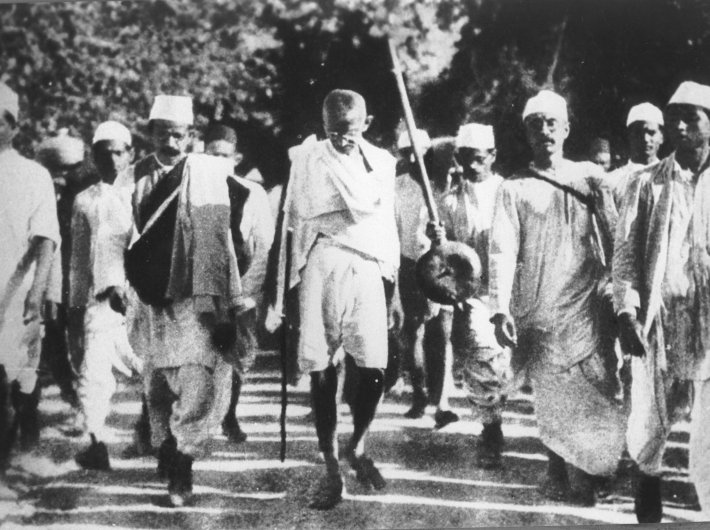On this day 86 years ago, Mahatma Gandhi addressed a gathering in Anand, the central Gujarat town today known for AMUL, exhorting youngsters to join the salt march he had begun five days earlier. Recalling the historic event, here are excerpts from the March 17, 1930 speech, which would have relevance and resonance for today’s times.
* A satyagrahi's path is the path of love, not one of enmity. It should be the ambition of a satyagrahi to win over even the most hard-hearted of enemies through love.
* This band of satyagrahis which has set out is not staging a play; its effect will not be merely temporary; even through death, it will prove true to its pledge - if death becomes necessary. The Government will, in the end, have to admit that these persons practising satyagraha were devotees of truth and non-violence. Nothing will be better than if this band of satyagrahis perishes. If the satyagrahis meet with death, it will put a seal upon their claim.
* Are the students of Anand and Kheda district going to sit down with their books, or will they follow the lead that has been given by the [Gujarat] Vidyapith? ... Today the Vidyapith has wound up its book-learning and has proved its motto: That is learning which liberates [Sa vidya ya vimuktaye].
All the students who have entered their sixteenth year have united in giving up their studies, and the teachers too have joined them. What more can be expected of a place where all the students as well as the teachers obtain cent per cent marks? Why do you also not adopt this path?
* You students must suspend your studies for as long as this struggle continues. At this time, I recall the words of the late Deshbandhu. He was unhappy about non-co-operation in schools. He used to say that we should certainly call out students when the time came for the final struggle but that we should leave them alone at the moment. I did not agree, and he joined in the boycott of schools. But these words were uttered in 1920. Not five, but ten years have elapsed since then. The final battle has to be waged. Hence there is no reason why students should now remain in schools.
* Today I am not asking for preparing one battlefield only. Today, everyone from Kanyakumari to Kashmir and from Karachi to Dibrugarh will be able to practise non-co-operation either individually or collectively. Until last December, I felt that the atmosphere was not favourable for civil disobedience and I said what I felt. I now claim that if ever the circumstances were opportune, they are today.
This is the auspicious moment. If at this auspicious time we do not develop the strength for civil disobedience we shall never do so. What student is he who will continue to study at such a time?
Formerly, I asked the students to leave schools and to set up national schools. Today I ask them to leave schools and come out on the battlefield and become mendicants for the sake of the country.
If a business man continues to carry on his business today, he will not enhance his prestige. If India wishes to launch satyagraha on a wide scale, this is the time when it should do so.
God will provide food and drink; countless people will provide it. If there is a flare-up in the entire country, and if the whole of India starts practising civil disobedience, how long will it take for 30 crores of people to free themselves from the grip-the domination - of a hundred thousand Britishers? School children will work this out by the rule of three.
* May God give you inner strength. This is not a question of utilizing your intellect. If something has to be made convincing through the use of the intellect, it can be set out in the same manner as a proposition of geometry with a Q.E.D. at the end of it. However, here the intellect becomes helpless if there is no strength of heart. The intellect is a handmaid of the heart.
I am helpless, however, if you feel at heart that this man has only begun a stunt, that at the end of a month he will call the thing off saying he has committed a Himalayan blunder and withdraw quietly to the banks of Sabarmati. If, however, you do not believe this to be the case, rest assured that so far as you and I are concerned this is indeed the final struggle and the means to be adopted are peaceful, involving civil disobedience and so on.
[From Gujarati] Navajivan, 23-3-1930
Source: Collected Works of Mahatma Gandhi, Vol 43, pp 93-96
Also see: www.gandhiheritageportal.org


